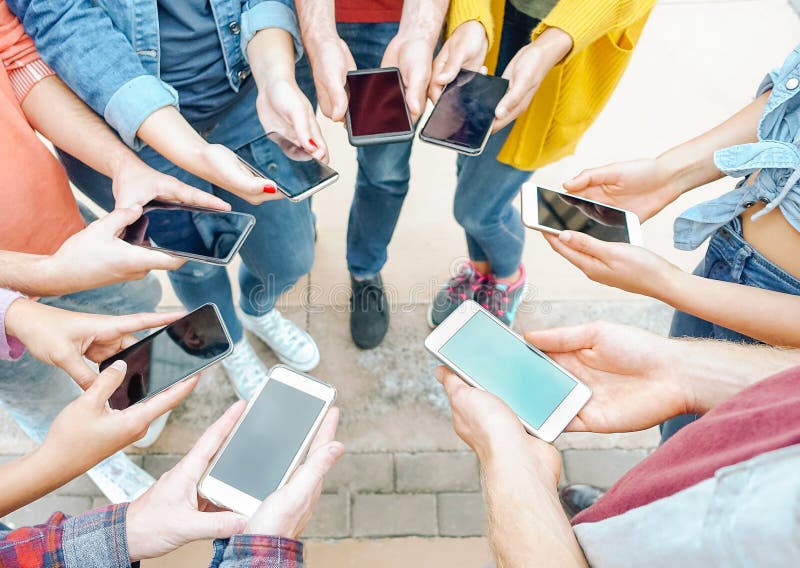The impact of smartphones on our lives
Introduction:
Smartphones have become an integral part of our lives, offering convenience, connectivity, and access to information at our fingertips. However, the widespread use of smartphones has also raised concerns about their impact on our health, relationships, and work-life balance. In this blog, we will explore both the positive and negative effects of smartphone use and discuss strategies for navigating these impacts effectively.
Positive Effects of Smartphone Use:
1. Enhanced Communication and Connectivity:
Smartphones have revolutionized the way we communicate and connect with others. Social media platforms, messaging apps, and video conferencing tools allow us to stay in touch with friends, family, and colleagues regardless of distance.
2. Access to Information and Knowledge:
Smartphones provide instant access to a vast reservoir of information and knowledge. Search engines, online libraries, and educational apps make it easy to learn new skills, stay informed about current events, and explore diverse topics.
3. Improved Productivity and Efficiency:
Smartphones can be powerful tools for productivity. Calendar apps, task management tools, and note-taking apps help us stay organized and manage our time effectively. Additionally, mobile banking, shopping, and bill payment apps streamline everyday tasks.
4. Entertainment and Relaxation:
Smartphones offer a wide range of entertainment options, including games, streaming services, and social media. These features can help us relax, de-stress, and unwind after a long day.
Negative Effects of Smartphone Use:
1. Impact on Mental Health:
Excessive smartphone use has been linked to increased anxiety, depression, and loneliness. Constantly being connected can lead to feelings of inadequacy, envy, and social isolation. Additionally, the blue light emitted from smartphone screens can disrupt sleep patterns.
2. Relationship Issues:
Smartphones can strain relationships by diverting attention away from face-to-face interactions. Spending too much time on our phones can lead to neglect of our loved ones and a decline in the quality of our relationships.
3. Work-Life Balance Disruption:
The constant availability of smartphones can blur the boundaries between work and personal life. Checking work emails and messages outside of work hours can lead to burnout and stress.
4. Reduced Physical Activity:
Spending excessive time on smartphones can lead to a sedentary lifestyle and decreased physical activity. This can contribute to weight gain, poor cardiovascular health, and other health problems.
Strategies for Navigating the Impact of Smartphones:
1. Set Boundaries:
Establish clear boundaries around smartphone use. Turn off notifications during certain times of the day, such as meals, family time, and bedtime. Designate specific times for checking emails and social media.
2. Practice Mindful Use:
Be mindful of your smartphone use and avoid mindless scrolling. Take breaks throughout the day to disconnect from your phone and engage in other activities.
3. Prioritize Real-World Interactions:
Make an effort to spend quality time with loved ones in person. Plan regular activities that don't involve smartphones, such as going for walks, playing games, or having meaningful conversations.
4. Promote Physical Activity:
Encourage physical activity by setting aside time for exercise and outdoor activities. Use fitness apps or pedometers to track your progress and stay motivated.
5. Seek Professional Help if Needed:
If you're struggling with smartphone addiction or its negative impacts on your mental health, consider seeking professional help. A therapist can help you develop strategies for managing your smartphone use and improving your overall well-being.
Apps, Websites, and Tricks to Promote Balanced Smartphone Use
Apps:
Screen Time Tracking Apps:These apps track your smartphone usage and provide insights into how you spend your time on your phone. Popular options include Moment, Screen Time (iOS), and Digital Wellbeing (Android).
App Limit Setting Apps: These apps allow you to set limits on how much time you can spend on specific apps each day. Some popular choices include AppBlock, Freedom, and Stay Focused.
Mindfulness and Meditation Apps:: Practicing mindfulness can help you become more aware of your smartphone use and make more intentional choices. Some popular mindfulness apps include Headspace, Calm, and Insight Timer.
Websites:
Digital Detox Websites:These websites provide resources and tips for reducing smartphone use and promoting digital well-being. Some popular websites include Digital Detox Challenge, Break Free from Your Phone, and The Minimalists.
Online Courses and Workshops:Many online courses and workshops are available to help you develop healthier smartphone habits. Platforms like Coursera, Udemy, and Skillshare offer courses on topics such as digital minimalism, smartphone addiction, and work-life balance.
Tricks:
Use Grayscale Mode:switching your phone to grayscale mode can make it less visually stimulating and reduce the temptation to use it excessively.
Turn Off Notifications: Disable notifications for non-essential apps to minimize distractions and interruptions.
Create a Dedicated Charging Station: Keep your phone away from your bed and other places where you tend to use it excessively.
Use Your Phone for Specific Purposes: Avoid using your phone for activities that can be done on other devices, such as watching videos or reading books.
Engage in Real-World Activities: Make an effort to spend time away from your phone and engage in real-world activities such as exercise, hobbies, and social interactions.
By utilizing these apps, websites, and tricks, you can take control of your smartphone use and promote a healthier and more balanced lifestyle.
Conclusion:
Smartphones have undoubtedly transformed our lives in many positive ways. However, it's important to be aware of the potential negative effects and take steps to mitigate them. By setting boundaries, practicing mindful use, prioritizing real-world interactions, promoting physical activity, and seeking professional help when needed, we can navigate the impact of smartphones and maintain a healthy and balanced lifestyle.


.jpg)
Comments
Post a Comment
Thank you!